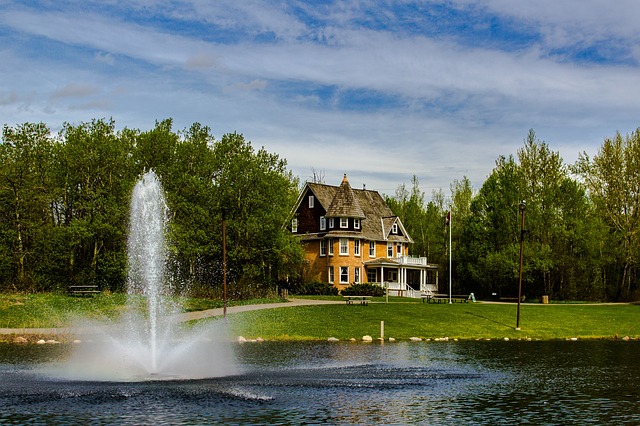If you own one investment property or many, it’s important to keep them in good condition, firstly so you attract and retain good tenants and also to ensure your investment is looked after. That means doing some specific maintenance when summer rolls around in order to keep your investments in tip-top shape.
Smoke Alarms
It’s a term of every residential tenancy agreement that the landlord will install and maintain smoke alarms according to the standards in the Environmental Planning and Assessment Regulation 2000.
For landlords the consequenes of not having a working smoke alarm can be disatrous. Not only could you be fined thousands of dollars for not having smoke alarms installed, but in some states it is a criminal offence.
Smoke alarms save lives, it is as simple as that. In fact according to Fire and Rescue NSW one third to a half of deaths due to residential fires could be prevented if the homes had working smoke alarms.
As a landlord you are responsible for ensuring your property meets the minimum requirement of having at least one working smoke alarm installed on every level of your home. You are responsible for the installation of smoke alarms in your rented premises and you have the right to access the rented premises to fit smoke alarms after giving the tenant at least two days’ notice.
After the tenancy begins, the tenant is responsible for replacing the battery, if needed, in battery-operated smoke alarms. Hard-wired smoke alarm back-up batteries are to be replaced by the landlord. If the tenant is physically unable to change the battery the tenant is required to notify the landlord as soon as practicable.
With day light saving about to commence now is the time to ensure your smoke alarms are in working order. Talk to your property manager about this to ensure the tenants change the batteries and that the smoke alarms are all working. Not only are you legally obliged to do this, most importantly it could save lives. We buy houses Ormond Beach.
Clean out the Gutters
Summer also means it’s fire season…so if your investment is in a fire risk clear out your gutters before the heat arrives.
If there’s a build-up of leaves, sticks or other debris in gutters, this can be a fire hazard. That’s not to mention the potential to block up the structure itself, which can make it difficult for water to drain through.

This can lead to bigger problems later on, such as gutters that sag, along with mildew accumulating in the area. It can also cause water damage, which could potentially affect the home itself.
Planning for the next year
Given the fluctuations in students and people’s employment many tenancy agreements finish either at the end of the year or the beginning of the next given fluctuations in student living situations and employment. If you are happy with your tenants and want them to resign it is now a good time to talk to your property manager to see how you can get your tenants to resign.
The benefits of keeping good tenants are you don’t have find new ones, you don’t have to screen new applicants, you avoid vacancy costs and advertising costs and the current tenants are aware of the rules of the property and payment conditions.
Summer garden maintenance
After winter you might find your garden needs a bit of TLC. Refresh the mulch, weed the garden beds and consider adding some flowering plants for a splash of colour. If you have a watering system, adjust the timer to day light saving time (if that applies to your state), clean the exterior lighting and windows and check if the entertaining deck needs any repairs and that the BBQ is set up safely to be enjoyed throughout summer.
Insulation
While insulating your rental property is a cost for you, you might find that you can secure a better weekly rent from tenants, given they won’t have to spend as much on their electricity bills and less likely to switch on the air conditioner bills.
If you get the opportunity to insulate the property thoroughly, this could pay off in the long run. How you do this will depend on the kind of dwelling you’ve invested in, but have a chat with your property manager if you’re not sure of the right approach.
Check the property isn’t being sub-leased
Many investment properties are rented to students and over the Summer holiday period, they all head home. It is worth finding out if they are looking to sub-lease your property while they are away. Unless it is in the lease, they will need to get written approval from you to sub-lease to someone else. Whilst you are not allowed to withhold this permission without a good reason, it is important to understand who is living in your investment.
